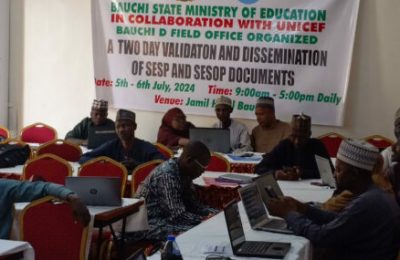Willie Walsh is the Director-General of International Air Transport Association (IATA), the clearing-house for over 320 airlines globally. In this interview with some African journalists, he spoke on the Nigerian payment of 98 percent of the foreign airlines trapped funds, importance of the Sustainable Aviation Fuel (SAF) to Africa. SHOLA ADEKOLA brings details.
WHAT do you think of Nigeria’s payment of 98 percent of the foreign airlines trapped funds and probability of other regions losing their flights to Nigeria?
Well, yes, it is an issue. And, you know, will airlines re-enter the market? They will have to have a sense of guarantee that they are going to continue to get their money. It is not good enough that you could not get the money that belong to you. They will want to know, will I continue to get it when I operate there? And that is the issue. So, I don’t think you can automatically assume that because an airline is able to repatriate the money that had been blocked, that that will immediately mean that they will re-enter the market. I think they will want to see assurances that they will continue to be able to repatriate money. Because they are not going to commit resources to restarting operations if the situation just redevelops, that the funds get blocked again.

What is the rationale behind IATA’s call on government to take pragmatic action on SAF and Africa being able to meet the 2050 target?
Yes, I think they can meet the target for 2050. I think everybody is determined. Everybody is frightened by the challenge, but they recognize that they have to achieve it. I think the issue of SAF is actually a huge opportunity for Africa. Because no longer are you dependent on extracting oil from the ground. You now have other opportunities to create a fuel that is in huge demand. And we have multiple feedstocks that are available. Africa has the opportunity to develop significant levels of renewable energy. Now, yes, it’s going to require investment. And this is the issue. Where do you invest to ensure longer-term return? But I think Africa has a huge opportunity when it comes to SAF. Africa could be an exporter of SAF to the world, given the resources that it has available. And I think the aviation industry in Africa could benefit from a clearer understanding of how the economies of Africa can benefit from greater connectivity. All of the research that’s been done. We have done a lot of it, as I showed. You have direct connectivity. You spur financial investment, foreign direct investment into your country. You stimulate business into and out of your country because of connectivity with markets. So, personally, I am optimistic for the future of African aviation. And I know from speaking to the leaders of African carriers that they understand that for them to play their role, they are going to have to get to net zero in 2050 as well. But it is going to be challenging for everybody. It is not just a challenge for African carriers. It is a challenge for every airline. But, you know, the general assessment and the general position of the industry is it’s something we have to achieve, and we will achieve.


As airlines face problem of aircraft manufacturing, especially with Boeing and Airbus, what is the role of IATA in solving or to making the situation easy?
Well, the airline industry works on direct relationship with the aircraft manufacturers. The role that IATA can play is to speak on behalf of the industry and sometimes to say things that individual airline CEOs would love to say but can’t say, because they would be concerned about making negative comments and how that might impact on the commercial relationship that they have. So, you know, I am empowered to be critical of people in a way that an individual airline CEO might be concerned to say it, but privately will thank me for saying it. So, you know, we are there to be the voice of the industry in general and to make sure that the manufacturers understand, without identifying an individual carrier, understand how angry, upset, frustrated the industry is at their performance. And that’s what we do to try and make it better than for our individual members. We have a lot of challenges as an industry. Some of them we have talked about, you know, the environmental challenge and the journey to net zero in 2050 is going to be significant. We are seeing, you know, a move away from accepted global practices like how slots at airports are managed. And we have highlighted this, particularly in the context of European airports. But, you know, there are challenges with the global political environment that is impacting on aviation. The oil price is always going to be a factor, bigger factor in Africa because you have additional taxes in Africa. You have got high infrastructure costs. So, while the industry elsewhere faces an average cost of about 31 percent, in Africa it’s 35 to 40 percent, which obviously impedes the development of African aviation. But in the main, the challenges that, you know, we see are common to pretty much every airline in the world. And the biggest challenge at the moment is the transition to net zero by 2050.
Do you think the relation between aircraft manufacturers and the airlines is healthy?
It’s a great question. I think it can be a lot healthier than it is. And it’s, you know, there are two issues there. Boeing clearly has disappointed a lot of its customers. Airbus, you know, sees themselves in a stronger position because their major competitor has been damaged recently. So, I don’t think either of the big OEMs is serving their customers as well as they could be. That is why it is important for us to see strong competition between Boeing and Airbus. That is the reason everybody in the industry wants to see Boeing address their issues and regain their credibility and their status in the industry to be an effective competitor to Boeing. We need them engaging with Airbus. We need that competition.
You said you are optimistic about African aviation and the future, but whyarethere richer and smaller airlines in Africa than any other region in the world?
The single biggest problem is because your airlines operations are operating in very small economies, rather than, like you say in Europe where an airline from one country can fly anywhere in Europe. And that would make the opportunities for the industry significantly greater. Because you will be spreading your overhead costs across a much bigger market. Consumers would benefit significantly from greater services. It would enable airlines to expand faster if you are operating in a bigger collective market. And I think it will happen, because we have been debating the single market in Africa for years. Everybody believes in it, but everybody’s afraid to implement it because there is always the fear that this is going to impact negatively on me. And therefore, I’d like to do it, but I am afraid to do it. I think ultimately for Africa to achieve its full potential, it will have to embrace a single market or at least, a collection of markets that is bigger than what exists today where, you know, trying to compete with small individual economies is just incredibly difficult for an airline.
And I don’t think African carriers have anything to fear, based on the experience in Europe, I don’t think they have anything to fear. I think it will be hard, but it’s much more weighted to the opportunity than to the risk.
What is IATA’s view on state owned airlines and government’s influence on state owned airlines?
No, anybody can own an airline. From our point of view, we don’t mind if it’s state ownership or private ownership. And in some areas, state ownership is a very effective way of running an airline. And in other, state ownership is a very ineffective way. But no, we don’t have a view on that, you know, it is not a single size fits all policy in relation to it.
Do you have kind of a checklist of what the government should be doing and shouldn’t be doing?
Well, it is not just a government, it is a shareholder. Because we have seen some shareholders take particular policies that you might say, wouldn’t exist and shouldn’t exist in other airlines. So, when I ran Aer Lingus, it was a state-owned airline. Government was the shareholder. They told me to do things and I ignored them. So, because I was competing with Ryanair, who didn’t have to address the political sensitivities that a government had. And that is the issue. Some governments will want you to do things because it will be beneficial to their re-election. Other governments will just let the airline get on and run, run in a fully commercial manner. So, when I was running Aer Lingus, you are competing with the most aggressive competitor in the world, Ryanair. I just ignored everything the government said to me because my priority was to make Aer Lingus competitive against Ryanair.
Read Also: ASUU: FG moves to avert strike, reopen talks








